What is chronic insomnia and what are its causes?
Chronic insomnia is a sleep disorder that occurs when a person has difficulty sleeping for a period of at least three months; in general, sufferers have trouble sleeping at least three nights a week during this period.
Many people experience difficulty both falling asleep and prolonging sleep for an adequate number of hours, and this leads to an endless series of problems both in the short and long term.
The causes chronic insomnia can be many: stress, anxiety, depression, physical illness, schedule changes, and the use of certain substances.
One of the main factors is stress. People who are in stressful situations, such as financial problems, difficulties at work or health problems, may have difficulty sleeping. In addition, people who have an anxiety disorder or depression may also have trouble sleeping. Worries and negative thoughts can prevent people from relaxing and preparing for a restful night.
Physical illness can also cause chronic insomnia. Some medical conditions, such as chronic pain or fibromyalgia, can cause discomfort during sleep. In addition, disorders such as obstructive sleep apnea and periodic limb movement during sleep (PLMS) can cause frequent awakenings during the night .
Time changes are another cause of chronic insomnia. For example, people who work night shifts or cross multiple time zones may have difficulty regulating their circadian rhythm and getting adequate sleep.
Certain substances, such as caffeine and alcohol, can interfere with sleep, combined with a profligate lifestyle can have very negative effects on health.
Last but not least is the Continuous use of smart phones even in the evening, especially by teenagers.
Why is sleep important?
Immune System:
The involvement of the immune system from lack of sleep deserves a separate paragraph.
Sleep is an essential activity of the body that plays an important role in the health and well-being of all of us. During sleep, the body rests, regenerates and repairs itself and is crucial for the regulation of the immune system.
The immune system is the body's defense against infection and disease; it functions in a complex and interactive way, involving many cells, tissues, and proteins that work together to protect the body from infection.
Sleep deprivation can affect immune system function in several ways.
First, lack of sleep can affect the production of cytokines, proteins that help regulate the immune response. Cytokines are important for communication between cells of the immune system and for the body's response to infection. Sleep deprivation can cause a decrease in the production of some cytokines and an increase in the production of others, which can adversely affect the body's ability to fight infection.
In addition, lack of sleep affects antibody production. Antibodies are proteins produced by the immune system to fight specific infections. Not sleeping can reduce the production of antibodies and their effectiveness in fighting infections.
Finally, insomnia has negative effects on the function of T cells, a type of immune system cells that help fight infection.
Therefore, we do not underestimate the relationship between sleep and the immune system because we do not see immediate symptoms; our defenses must always be at their peak to fight against viruses, bacteria, and diseases.

Physical Wellness
Besides the consequences on our beloved immune system there are more obvious things that can happen to a tired person, one of which is having a higher risk of having accidents given the impaired ability to react and make decisions quickly.
Not sleeping can lead to blood pressure and heart rhythm problems, increasing the risk of cardiovascular diseases such as hypertension and myocardial infarction.
It can also increase the risk of obesity, as sleep regulates the production of hormones that control appetite and metabolism.
Speaking of metabolism, muscle tone and growth may drop since sleep helps regenerate muscle fibers and repair post-workout damage.
To stay as young as possible you need to sleep!
In fact, chronic insomnia can have negative effects on skin health, as sleep helps regenerate skin cells and prevent premature aging. It can also affect eye health, causing dry eyes and irritation.
Psychological well-being
Sleep deprivation can affect an individual's mental health and psychological well-being in various ways.
When the body does not get the amount of sleep it needs, cognitive functions and mental abilities can be impaired. In particular, fatigue and lack of energy can limit the ability to concentrate and productivity, making daily activities more difficult.
Lack of sleep leads to increased production of the stress hormone cortisol, which can have negative effects on long-term mental health.
Irritability is another common symptom of chronic insomnia, which can lead to increased tension and sensitivity to stressful situations, can also have impacts on social relationships, as an irritable person may have difficulty handling interactions.
In addition, insomnia can also affect memory and learning ability, as sleep helps consolidate memories and maintain brain plasticity.
Not sleeping certainly can increase the risk of developing mood disorders such as depression and anxiety. This may be due to decreased production of serotonin, a neurotransmitter that regulates mood and sleep.

How to create a routine for better sleep
Creating a sleep routine can help improve the quality of sleep.
First, it is essential to establish a regular bedtime and get up in the morning, even during non-work days. This will help regulate the sleep cycle and create a habit.
In addition, it is important to create a suitable sleeping environment with a comfortable temperature and good ventilation. You need to reduce the brightness in the room, using blinds or dark curtains, and reduce outside noise with earplugs or other means.
It is essential to reduce stress before bedtime by avoiding stressful or stimulating activities such as the use of electronic devices, board games or heated discussions. Instead, relaxation techniques can be used; even a warm bath might help.
Don't drink alcohol, don't drink too much water and avoid smoking before sleeping, in the evening meals should be light.
Finally, one should avoid sleeping too much during the day because it may interfere with the sleep cycle and make it difficult to fall asleep at night.
How many hours should you sleep?
The number of hours of sleep needed varies from person to person and depends on several factors, including age, lifestyle and general health.
Adults should try to sleep 7 to 9 hours each night to maintain good health.
Children and adolescents, on the other hand, should sleep more as they need more hours of sleep to support their growth and brain development, so preschoolers should sleep 10 to 13 hours each night, while school-age children should sleep 9 to 11 hours.
It is important to note that the quality of sleep is just as important as the quantity of hours slept; having a deep and restful sleep allows, as we said, the body to recover and regenerate during the night.
Medications for chronic insomnia
Drug therapies are one of the most common and widely used treatment options to combat this sleep disorder.
However, it is important to make considerations before starting treatment.
Drugs for insomnia can be divided into several categories, including sedatives, hypnotics, and anti-anxiety drugs.
These drugs act on the central nervous system, reducing brain activity and inducing sleep.
However, these drugs can also have side effects, including daytime drowsiness, dizziness, nausea, addiction and tolerance.
In addition, there are some contraindications for the use of insomnia medications, such as pregnancy, breastfeeding, and some diseases, such as depression and sleep apnea.
For these reasons, it is important to consult a physician before starting drug therapy.
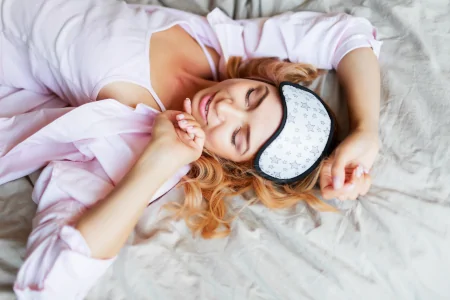
Natural remedies for better sleep
There are several natural remedies that can help relieve the symptoms of chronic insomnia, improving sleep quality and reducing fatigue during the day.
One of the first steps you can take is to improve your diet, avoiding eating foods that are too heavy or spicy, especially before bedtime. Also, it is important to avoid alcohol and caffeine, as these can interfere with sleep.
Regular physical activity is another natural remedy that can help relieve the symptoms of chronic insomnia. Exercise can help reduce stress and anxiety, improving mood and increasing a sense of well-being. Practicing physical activity especially during the day or in the early evening hours will bring the best results.
There are also relaxation techniques that can help relieve stress and tension, promoting sleep. These include meditation, yoga, deep breathing and visualization. These techniques can be used both before bedtime and during the night to reduce anxiety and muscle tension.
Even simple chamomile and valerian herbal teas taken in the evening could promote a restful night.
In addition to the above, very effective natural remedies for insomnia are supplements containing Melatonin, Gaba, Magnesium, Tryptophan, and Theanine.
Each substance has its own peculiarities, which we briefly describe below, promising that for each of them, we will make a dedicated article.
Melatonin is a hormone produced by the pineal gland in the brain, also known as the sleep hormone. Melatonin supplements are commonly used to help regulate the body's circadian rhythms and to help promote sleep. Melatonin is also a natural antioxidant that can help fight oxidative stress.
CBD and CBG oil are oils obtained from the processing of cannabis, among their many benefits we have that of promoting relaxation and sleep by acting on the receptors of our body's endocannabinoid system.
The Gaba is an inhibitory neurotransmitter that helps calm nervous system activity and reduce anxiety. GABA supplements are often used to improve sleep and reduce stress.
Magnesium is an essential mineral for body and brain health. Magnesium supplements can help reduce stress and improve sleep quality. In addition, magnesium is important for muscle and nerve health, energy metabolism, and the immune system.
Tryptophan is an essential amino acid that is converted to serotonin, a neurotransmitter that regulates mood and sleep. Tryptophan supplements are used to improve sleep quality and to help reduce stress and anxiety and symptoms of depression.
The 5-HTP is an amino acid produced directly from tryptophan in the body and has high bioavailability.
It is used as a supplement to increase serotonin production, is used to improve sleep, reduce anxiety, and relieve depression.
Theanine is an amino acid found in green tea, which can help reduce anxiety and improve sleep quality. Theanine may also help improve concentration and memory, as well as relieve symptoms of depression.
It is important to remember that supplements should not be used as a substitute for a healthy lifestyle.
Below are some supplements chosen by us.
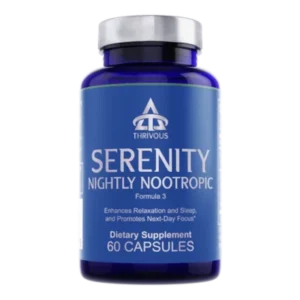 |  | 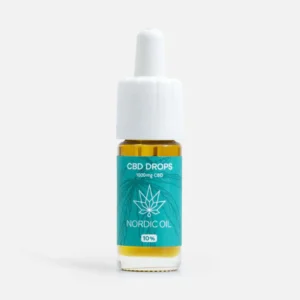 |  |
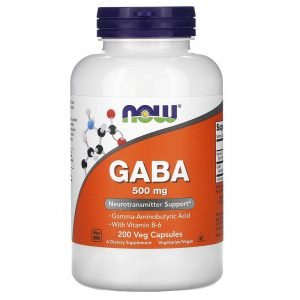 | 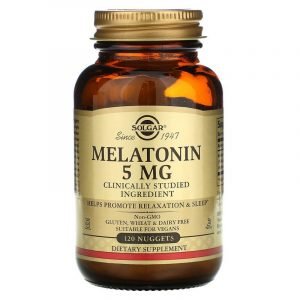 |  |
Also visit our selection of relaxation supplements.





